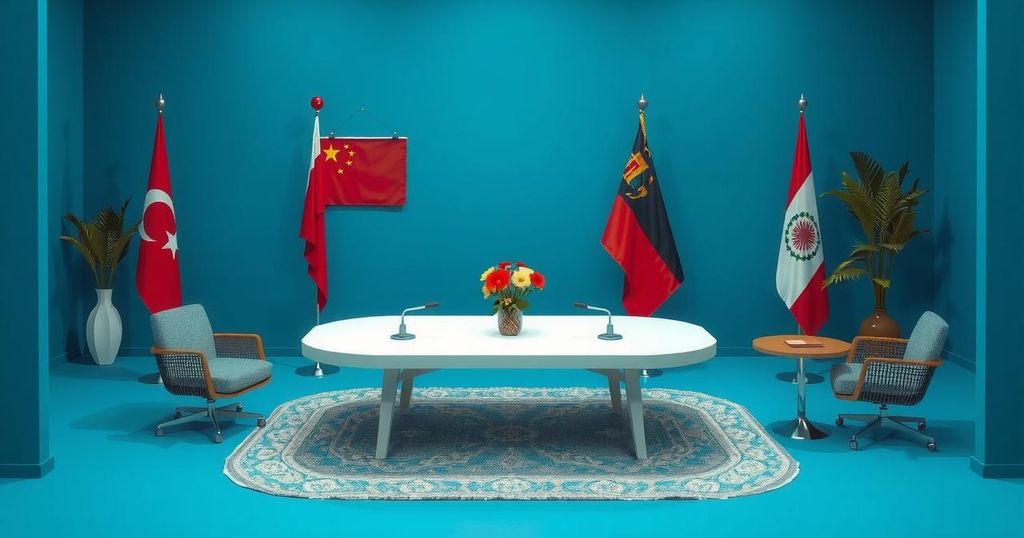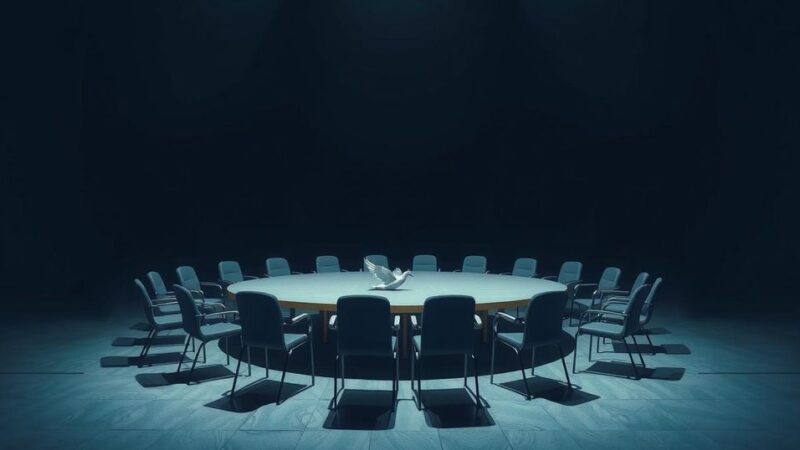President Donald Trump has communicated with Iran’s Supreme Leader, seeking negotiations on Iran’s nuclear program to replace the previous deal withdrawn by the U.S. Trump expressed hope for a peaceful resolution while cautioning the potential for military intervention. Tensions remain high as Iran accelerates its uranium enrichment, prompting fears of conflict. The outcome is uncertain amid Iran’s economic struggles and internal dissent.
President Donald Trump has reached out to Iran’s Supreme Leader, Ali Khamenei, through a letter aimed at negotiating a deal regarding Iran’s advancing nuclear program. This communication is intended to replace the nuclear agreement from which Trump previously withdrew the United States. Although Iranian state media covered Trump’s statements, there has not yet been confirmation from Khamenei’s office regarding the receipt of the letter. The situation remains tense and unresolved, particularly as both Israel and the U.S. maintain a firm stance against Iran acquiring nuclear weapons.
In a related interview, President Trump indicated that significant developments are imminent concerning Iran, expressing hope for a peaceful resolution to the ongoing tensions. He articulated his preference for a negotiated deal rather than military intervention, suggesting that any military action could have devastating consequences. Trump noted, “Hopefully we can have a peace deal…” and emphasized that Iran would benefit from engaging in negotiations.
Trump’s letter reportedly encourages Iran to negotiate in hopes of preventing military action, stating, “I hope you’re going to negotiate because if we have to go in militarily, it’s going to be a terrible thing.” His remarks draw parallels to his previous interactions with North Korea, where letter exchanges eventually led to face-to-face discussions, albeit without concrete agreements.
U.S. intelligence estimates indicate that Iran has not yet initiated a weapons program but has been engaged in activities that position it to produce a nuclear device if it chooses. The recent increase of near weapons-grade uranium production by Iran has raised alarms among U.S. officials, as it exacerbates tension and uncertainty in the region. Since Trump’s return to the presidency, his administration continued to assert that preventing Iran from obtaining nuclear weapons is paramount.
The historical context surrounding the Iran-U.S. relationship is critical, especially following Trump’s withdrawal from the 2015 nuclear agreement which resulted in severe sanctions on Iran’s economy. The ramifications of the withdrawal included retaliatory actions from Iran, including attacks on maritime assets and military provocations. The urgency for diplomatic engagement is underscored by the deteriorating situation within Iran, characterized by economic decline and unrest among the populace over domestic issues.
Despite a previous willingness for engagement indicated by Khamenei, recent comments suggest that he may not view negotiations with the U.S. favorably. For instance, Khamenei previously proclaimed, “I do not consider Trump personally worthy of exchanging any messages…” highlighting the complexities and distrust that permeate diplomatic channels. As Iran’s dire economic conditions continue to escalate, analysts question how the leadership will respond to external pressures amid growing internal dissent.
In summary, President Donald Trump’s recent outreach to Iran’s Supreme Leader through a letter signifies an attempt to negotiate a new agreement concerning Iran’s nuclear program. While Trump expresses hope for a diplomatic resolution, Iran’s historical mistrust and escalating uranium enrichment raise significant concerns. The situation illustrates the complexities of U.S.-Iran relations, highlighting the critical balance between diplomacy and potential military intervention. The outcome remains uncertain as both nations navigate these tensions against a backdrop of internal and external pressures.
Original Source: www.newspressnow.com






